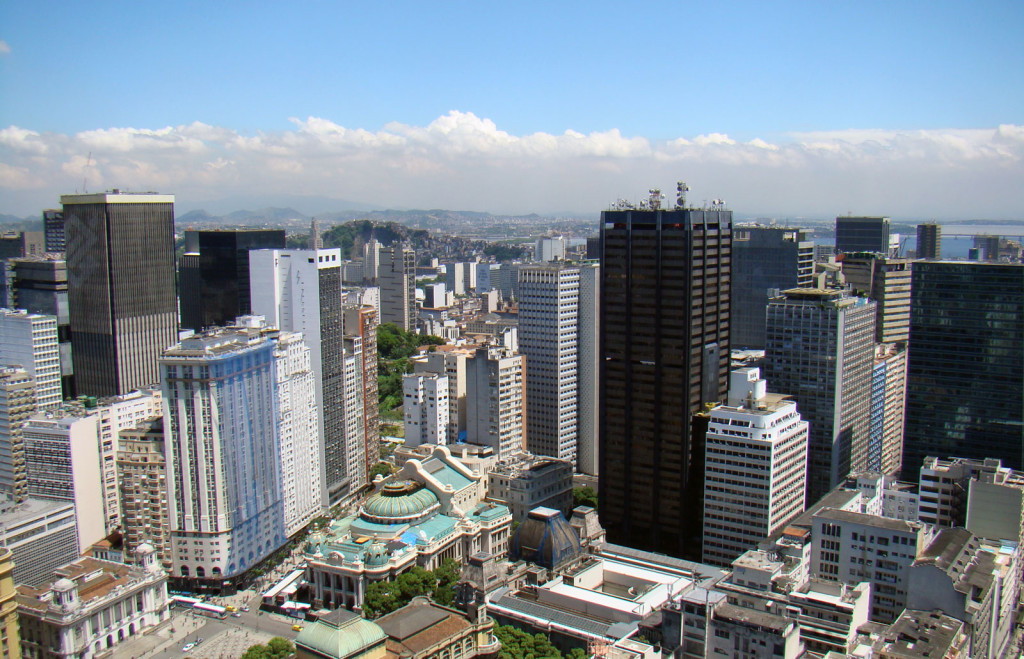
Rio de Janeiro’s financial district. Photo © Rodrigo Soldon, licensed Creative Commons Attribution.
If you’re going to be doing any kind of work at all in Brazil—either paid or volunteer, with or without a contract—or you are participating in any type of training, internship, or residency program, you need to have a work visa.In order to obtain a work visa, an application has to be sent to the local Ministério do Trabalho e Emprego (Ministry of Labor and Employment) by the Brazilian company—or the foreign company’s affiliate based in Brazil—that wishes to employ you. Different visas are available depending on your situation and the work you plan to do.
Permanent visas (valid five years) are available for company administrators and for those who plan to invest in a Brazilian business as well as scientists, professors, and researchers. Temporary visas are available for skilled workers who can prove that no Brazilian citizen can perform their duties. Valid for two years, they can be renewed for another two years. Such visas are often issued to people hired by Brazil-based affiliates of foreign companies, but they are also available to similarly qualified individuals who want to work as independent contractors on specific projects (usually for Brazilian companies).
To find out about requirements relative to your specific activity, consult the online procedure guide published by the Ministry of Labor.
Once the Ministry of Labor has approved your application—deliberation could take a month, provided you have all your documents in order—it is sent to the Ministry of External Affairs, which will authorize the consulate to begin processing the visa itself. Aside from filling out the online application form, you need proof of residency in the consulate’s jurisdiction for more than one year and a certificate from your city police department showing you have no criminal record.
Applicants who don’t have a work contract or who aren’t employees of a business based in Brazil—for example, those doing volunteer work—need to provide further documentation, including proof of health insurance that is valid in Brazil and a letter of invitation from the Brazilian organization where you’ll be working or volunteering that attests to its legitimacy and outlines your duties.
The bureaucracy involved in obtaining a work visa is notorious. In response to the scarcity of qualified labor in Brazil and the recent flux of foreigners seeking to fill positions, efforts have been made to speed up and streamline the process, but it’s still a fairly long and drawn-out affair. When applying, you basically have to prove why no Brazilian can do the job that you are being hired to do. This is much easier if you’re an engineer, scientist, tech expert, or are angling for a job in the booming oil, mining, or IT industries.
In many cases, the company that is hiring or transferring you will have immigration lawyers or specialists on hand that will deal with the visa process for you as well as for your family. A work visa allows spouses and dependents to legally reside in Brazil, but does not allow them to work. In order for a spouse to work in Brazil, he or she would need to get his or her own work visa or become a permanent resident of Brazil.
Excerpted from the First Edition of Moon Living Abroad in Brazil.